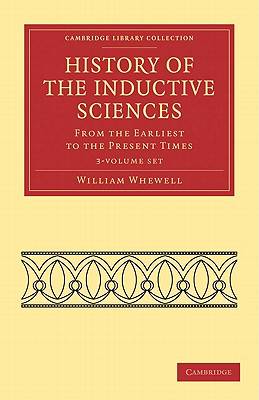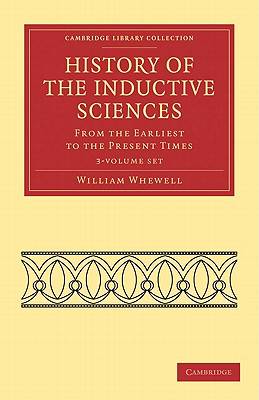
- Afhalen na 1 uur in een winkel met voorraad
- Gratis thuislevering in België vanaf € 30
- Ruim aanbod met 7 miljoen producten
- Afhalen na 1 uur in een winkel met voorraad
- Gratis thuislevering in België vanaf € 30
- Ruim aanbod met 7 miljoen producten
Zoeken
History of the Inductive Sciences 3 Volume Set
From the Earliest to the Present Times
William Whewell
€ 143,95
+ 287 punten
Omschrijving
Whewell's History, published in 1837, surveys the development of the physical sciences from Pythagoras to the early nineteenth century. Volume 1 goes up to early modern times. Volume 2 discusses the rise of modern scientific methods. Volume 3 discusses electricity, magnetism and thermodynamics, as well as chemistry, zoology and botany.
Specificaties
Betrokkenen
- Auteur(s):
- Uitgeverij:
Inhoud
- Aantal bladzijden:
- 1670
- Reeks:
Eigenschappen
- Productcode (EAN):
- 9781108019279
- Verschijningsdatum:
- 9/09/2010
- Uitvoering:
- Boek
- Afmetingen:
- 250 mm x 330 mm
- Gewicht:
- 26 g

Alleen bij Standaard Boekhandel
+ 287 punten op je klantenkaart van Standaard Boekhandel
Beoordelingen
We publiceren alleen reviews die voldoen aan de voorwaarden voor reviews. Bekijk onze voorwaarden voor reviews.







